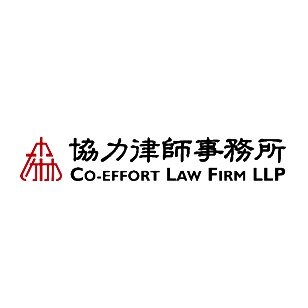Best Tax Increment Financing Lawyers in Beijing
Share your needs with us, get contacted by law firms.
Free. Takes 2 min.
List of the best lawyers in Beijing, China
About Tax Increment Financing Law in Beijing, China
Tax Increment Financing (TIF) is a tool utilized by local governments to stimulate economic development and urban renewal. In Beijing, TIF involves capturing the future tax benefits of real estate developments to fund public infrastructure improvements. By leveraging anticipated future tax revenue increases resulting from redevelopment projects, municipalities in Beijing can invest upfront in necessary infrastructure improvements. While common in many countries, TIF in China, and more specifically in Beijing, is intricately linked to local government regulations and financial mechanisms uniquely adapted to the area’s socio-economic dynamics.
Why You May Need a Lawyer
Legal assistance in the realm of Tax Increment Financing may be necessary for several reasons:
- Complexity of Regulations: TIF involves a multifaceted mix of local laws and financial mechanisms, which can be challenging to navigate without expert knowledge.
- Project Feasibility: Assessing the legality and financial viability of a proposed TIF project requires thorough legal and financial analysis.
- Negotiations with Municipalities: Lawyers can represent the interests of developers, helping negotiate terms and conditions with local government entities to secure favorable agreements.
- Dispute Resolution: When conflicts arise regarding TIF agreements or project implementation, legal counsel can be invaluable in mediating or litigating disputes.
- Compliance and Due Diligence: Ensuring compliance with all relevant regulations and conducting due diligence can prevent potential legal pitfalls.
Local Laws Overview
Beijing’s approach to Tax Increment Financing is governed by a mixture of national financial policies and specific local government policies aimed at fostering urban development. Key aspects include:
- Approval Processes: TIF proposals must undergo rigorous scrutiny and approval by local government agencies, ensuring alignment with strategic urban planning goals.
- Usage Restrictions: Funds generated through TIF can primarily be used for public projects such as infrastructure improvements, rather than private commercial developments.
- Revenue Allocation: Regulations dictate how increased tax revenues from developed areas are allocated between debt repayment and reinvestment in other community projects.
- Performance Reporting: Regular performance and financial reporting are mandatory to ensure transparency and accountability in the utilization of TIF funds.
Frequently Asked Questions
1. What exactly is tax increment financing?
Tax increment financing (TIF) is a public financing method that is used to subsidize infrastructure and community improvement projects through future gains in tax revenue.
2. How does TIF work in Beijing?
In Beijing, TIF works by using expected increases in property tax revenues resulting from new development to finance the construction of necessary public infrastructure within a specific area.
3. Who is eligible to apply for TIF?
Developers working on projects that will increase the tax base of a designated area and align with urban development plans may be eligible to apply for TIF, subject to government approval.
4. What types of projects can be financed with TIF?
Typically, TIF is used to finance public infrastructure projects such as roads, bridges, municipal buildings, and public parks.
5. How are TIF funds disbursed?
TIF funds are disbursed following the completion of infrastructure projects, based on a predetermined agreement regarding the allocation of tax revenue increases.
6. Can TIF funding be used for private projects?
No, TIF funding in Beijing is generally restricted to public infrastructure projects and cannot be used to directly finance private development projects.
7. What is the typical duration of a TIF agreement?
The duration of a TIF agreement can vary but usually spans several years to decades, depending on the scale of the development and the funding required.
8. How is a TIF district established?
A TIF district is established through a comprehensive proposal and approval process involving local government agencies and stakeholders.
9. What is a common challenge of TIF implementation?
One common challenge is ensuring that the projected tax revenue increase materializes, as this is crucial for fulfilling the financial obligations of the TIF agreement.
10. How can changes in local laws affect TIF agreements?
Changes in local laws or financial policies can impact TIF agreements, potentially necessitating renegotiations or adjustments to the project's financial structure.
Additional Resources
- Beijing Municipal Bureau of Finance: Provides guidelines and policies related to urban development and financing.
- National Development and Reform Commission (NDRC): Offers insights into the broader framework for urban economic development in China.
- Local Law Firms Specializing in TIF: Can provide personalized legal advice and support throughout the TIF process.
- Chinese Urban Planning Societies: Offer resources and discussions on the implications of development financing.
Next Steps
If you require legal assistance in matters relating to Tax Increment Financing in Beijing, consider these steps:
- Research and Identify Legal Experts: Look for experienced lawyers or firms that specialize in TIF and urban development finance.
- Consultation: Schedule an initial consultation to discuss your project, specific needs, and any potential legal hurdles you may encounter.
- Documentation Review: Gather all relevant project documents and financial information to provide to your legal advisor.
- Strategy Development: Work with your lawyer to develop a comprehensive strategy that addresses both legal compliance and project feasibility.
- Negotiation and Approval Process: Engage your legal counsel to assist with negotiations and navigate the approval processes with local authorities.
Engaging with professionals can provide essential guidance, ensuring that your projects align with Beijing's regulations and economic development goals.
Lawzana helps you find the best lawyers and law firms in Beijing through a curated and pre-screened list of qualified legal professionals. Our platform offers rankings and detailed profiles of attorneys and law firms, allowing you to compare based on practice areas, including Tax Increment Financing, experience, and client feedback.
Each profile includes a description of the firm's areas of practice, client reviews, team members and partners, year of establishment, spoken languages, office locations, contact information, social media presence, and any published articles or resources. Most firms on our platform speak English and are experienced in both local and international legal matters.
Get a quote from top-rated law firms in Beijing, China — quickly, securely, and without unnecessary hassle.
Disclaimer:
The information provided on this page is for general informational purposes only and does not constitute legal advice. While we strive to ensure the accuracy and relevance of the content, legal information may change over time, and interpretations of the law can vary. You should always consult with a qualified legal professional for advice specific to your situation.
We disclaim all liability for actions taken or not taken based on the content of this page. If you believe any information is incorrect or outdated, please contact us, and we will review and update it where appropriate.

















